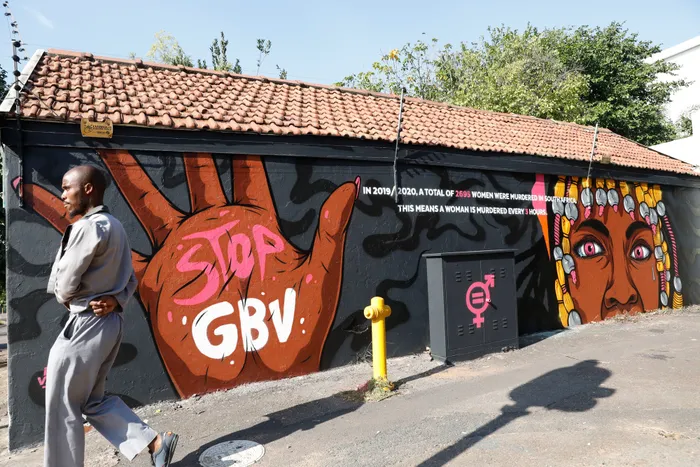KwaZulu-Natal faces alarming rise in gender-based violence, more than 110 women murdered since October

A mural calling for GBV to be stopped is depicted on a wall More than 110 women were murdered in KwaZulu-Natal since the start of October.Picture: Doctor Ngcobo Independent Newspapers
KwaZulu-Natal is grappling with a wave of violence against women and children, with over 110 women murdered in the province since the start of October.
Police Minister Senzo Mchunu disclosed the femicide figure at the funeral of Captain Mandla Khubisa in Esikhaleni on the KZN North Coast. Mchunu revealed that most victims knew their killers.
He said, of the women killed, 64 were shot, 24 were stabbed, 15 were beaten, four suffered blunt force trauma and three were burnt to death.
One of the most recent cases of violence occurred in oThongathi, where a man allegedly assaulted his seven-year-old stepson with a panga, leaving the boy critically injured and kidnapped his three-year-old stepchild. The child’s body was later recovered after the suspect led police to the location.
The man has since been arrested and is facing charges related to the crimes.
Another tragic incident occurred in Umgababa, where 24-year-old Mlondi Cele killed his girlfriend and their three-year-old child, then took his own life. Just before that incident, 25-year-old Nontobeko Cele was also murdered by her partner, Sibusiso Lawrence Ntaka, in Umzinto. Ntaka confessed to the crime in a video posted on social media before taking his own life.
Nontobeko Cele's family revealed a history of violence in the relationship, including a previous incident where Ntaka allegedly ran her over with his car.
KZN Violence monitor Mary de Haas expressed concern over the systemic failures in policing in such cases. “The police are letting women down, left, right and centre,” she said.
“In many cases, there is no proper crime scene investigation and no follow-up. For example, a woman disappeared recently and it was almost certain who the suspects were, but the police did not even bother to interview them.”
De Haas highlighted a disturbing pattern of negligence. She recalled a case where a woman was abducted, raped and dumped in another province but was unable to open a case because the police refused to assist her.
“This is the last thing you do when someone has been raped.
“This sort of treatment happens far too often,” she said.
She also mentioned cases where women had protection orders against abusive partners, yet the perpetrators were still able to access weapons.
“In one instance, a man with a protection order against him shot and killed his wife and others in front of witnesses. Why was he still allowed to carry a gun?”
De Haas decried the lack of urgency in dealing with gender-based violence. “Without proper investigations and follow-ups, perpetrators often evade justice. This is why so many women feel let down by the system,” she said.
Related Topics: